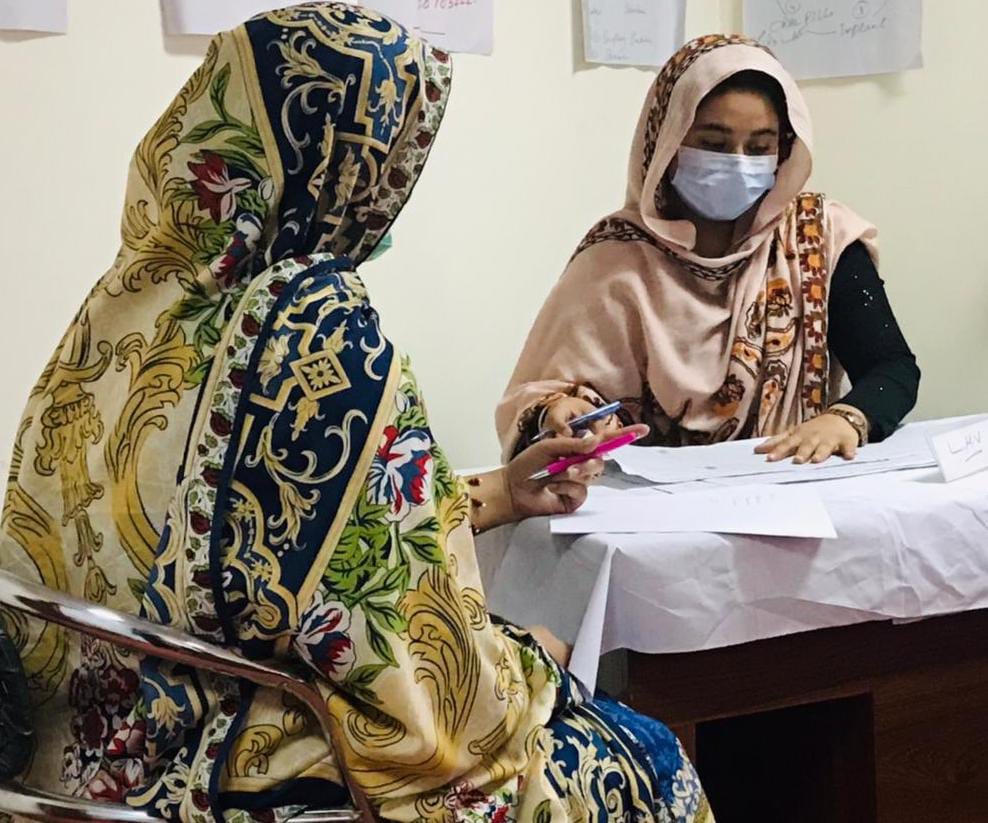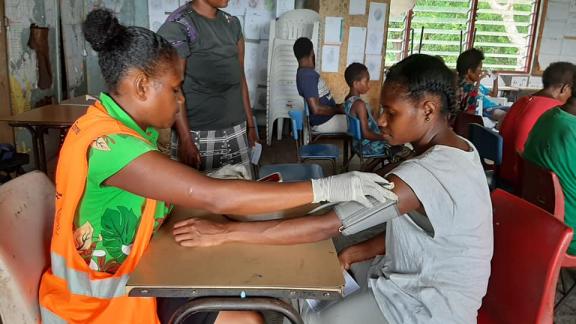UNHCR recorded approximately 1.4 million Afghan refugees in Pakistan in 2021, with 30,000 arriving in August alone as the Taliban took control in Afghanistan. The Pakistani Government's capacity to respond to this humanitarian crisis remains limited given the scale of need. Living conditions in many camps are poor, with overcrowding a major challenge. Pervasive gender inequality and a de-prioritisation of sexual and reproductive health (SRH) care mean that women and girls are particularly vulnerable and at heightened risk of illness and death from preventable causes including unsafe abortions and maternal complications.
With support from the Australian Government, IPPF is addressing SRH needs through the RESPOND program. This program, running across 19 countries where IPPF has a presence, aims to serve 13,440 Afghan refugees in Pakistan over two years (2021-2023).
IPPF Pakistani Member Association (MA), the Rahnuma Family Planning Association of Pakistan (FPAP), is central to these efforts. Since the onset of RESPOND in August 2021, FPAP has already conducted 37 medical camps reaching over 2,000 people across Peshawar and Khyber Agency districts in KP, and in Quetta and Pishin districts in Balochistan, housing the most Afghan refugees in the country. Almost 40 per cent of women and girls accessing care with FPAP are below the age of 20. Some of the clients being reached have been refugees in Pakistan for a long time, whereas others have recently crossed the border. Once in Pakistan, they have limited access to government services.
Women and girls make up 96 per cent of clients accessing the FPAP medical camps. Most women being treated are married with children, with the overwhelming majority seeking SRH services for:
- Obstetric, gynaecological and antenatal care
- Menstruation support
- Sexually Transmissible Infections (STIs)
- Sexual and Gender-based violence (SGBV)
- Family planning
With the unfolding humanitarian crisis, access to family planning enables women and girls to control whether and when to have children. Currently, FPAP reports that almost half of clients (49%) in the camps are opting for the oral conceptive pill, whilst 1 in 5 are seeking condoms and a smaller proportion are accessing Sayana Press (a form of contraceptive injectable that lasts for 3 months). Long-term methods such as IUDs are not very popular, likely because they’re deemed invasive to privacy or culturally inappropriate.
A major challenge in the camps being reported right now is SGBV. FPAP staff has reported a worrying lack of counselling and mental health services available for refugees in KP and Balochistan, in addition to clinical care for survivors of sexual violence. As such, SGBV remains a key priority of FPAP when delivering medical camps.
Nasrin , aged 38, reported ongoing physical and emotional abuse at the hands of male family members. Married with four children, her husband is drug user and as such, the family’s only source of income is from Nasrin’s brother-in-law, who repeatedly beat her. With no financial means to support herself if she were to leave, Nasrin attended the camp to see guidance from FPAP. FPAP was able to provide counselling, clinical care, and connected her with a local NGO focused on women-led income generation.
Supporting women like Nasrin gives rise to the profound impact that the RESPOND program is having. Afghan women and girls are so often silenced, and their health and wellbeing needs are regularly ignored. For many Afghani refugees encamped in Pakistan, services enabled through RESPOND are a lifeline to receive essential SRH care and ensure the futures of those most vulnerable.
Serving Afghan refugees in Pakistan
IPPF Pakistani Member Association (MA), the Rahnuma Family Planning Association of Pakistan (FPAP), is central to these efforts. Since the onset of RESPOND in August 2021, FPAP has already conducted 37 medical camps reaching over 2,000 people across Peshawar and Khyber Agency districts in KP, and in Quetta and Pishin districts in Balochistan, housing the most Afghan refugees in the country. Almost 40 per cent of women and girls accessing care with FPAP are below the age of 20. Some of the clients being reached have been refugees in Pakistan for a long time, whereas others have recently crossed the border. Once in Pakistan, they have limited access to government services.

when









